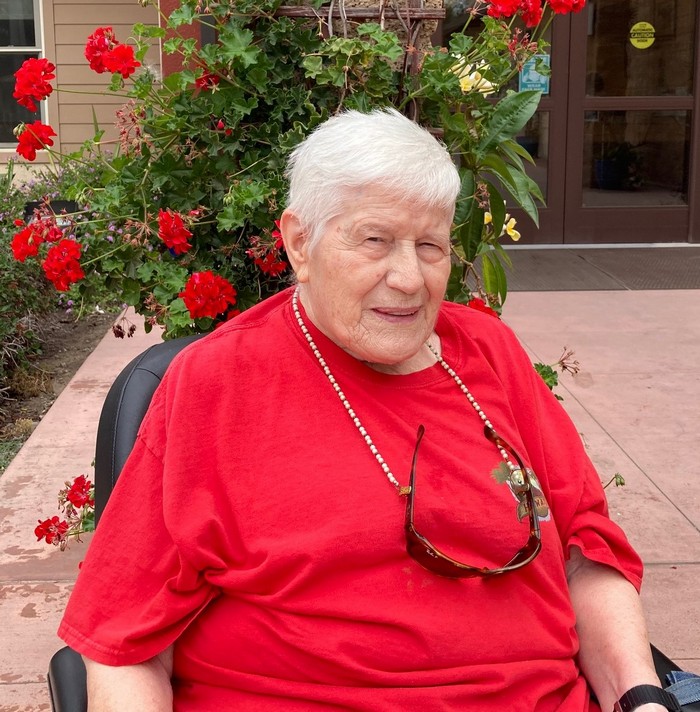Bennett’s journey has not been an easy one.
by Sheli Ellsworth
In 1943, nine-year-old Maureen Bennett came down with meningitis—an inflammation of the fluid and membranes surrounding the brain and spinal cord. “They’d done lumbar punctures to diagnose, and I had terrible nosebleeds. Some people told us to use brown paper or a clean dime under my upper lip to stop the bleeding–it rarely helped. I was miserable. I remember being in bed and seeing company walking outside past my bedroom window towards our front door. That was the last thing I can recall before going unconscious,” says Bennett. “I was told that I began convulsing and my parents, aunt and uncle put me in the car and raced to the hospital.” Bennett’s father tore up the road between the towns of Coleman and Saginaw, Michigan while her uncle prayed. “Dumb luck got us to the right hospital. Our family doctor had called ahead, but my dad just followed the signs that said ‘hospital’ and it turned out to be the right one.” Bennett’s temperature was 106° F.
Doctors at the Saginaw hospital told her parents that they had a new experimental medication that might save their daughter’s life. “They said, ‘We have this drug but it could leave her a vegetable; it could kill her, but it might let her live.’ My parents had no choice.” The doctors experimented with the dosage because not enough was known about the drug.
One afternoon, six weeks later, Bennett woke up from her coma. “My mom screamed and nurses came running. I couldn’t get out of the hospital fast enough. I soon went home, but I couldn’t walk. I scooted a chair around like a walker and I leaned on its back.” Maureen recovered and became her mother’s helper, caring for her five younger siblings.
The drug Bennett had been given was penicillin.
Two years later in 1945, Sottish scientist-physician Alexander Fleming, Australian pharmacologist-pathologist Howard Florey and German-British biochemist Ernst Chain shared the Nobel Prize in Physiology or Medicine for the discovery and development of penicillin. It is estimated that 80-200 million human lives have been saved by penicillin. Originally derived from the Penicillium mold on melons, the name penicillin was chosen “to avoid the repetition of the rather cumbersome phrase: mould broth filtrate,” according to Fleming.
Bennett’s journey has not been an easy one. She served in the U.S. Navy as a teletype operator for four years and was in the Army reserve for sixteen. Eventually, she married and had four boys. “Then my husband abandoned us and we lived in my Falcon car for a while. I eventually went to nursing school and worked as an LVN for ten years.” She also worked as a mail carrier. Bennett, who now goes by the last name Finlay, is unable to tolerate most medications which is a problem for someone her age. “The doctors think I can’t take medications because of the penicillin. I’m in pain most days, but I can’t take pain pills. They just put me out.” A resident at the Veterans Home-Ventura for the last seven years, she is now dependent on a mobility device at the assisted living facility. “But, I’m fortunate that I had someplace to go. Many are not so lucky.”
Note: Do you know (or are) a senior with an interesting story to tell let us know at [email protected].







